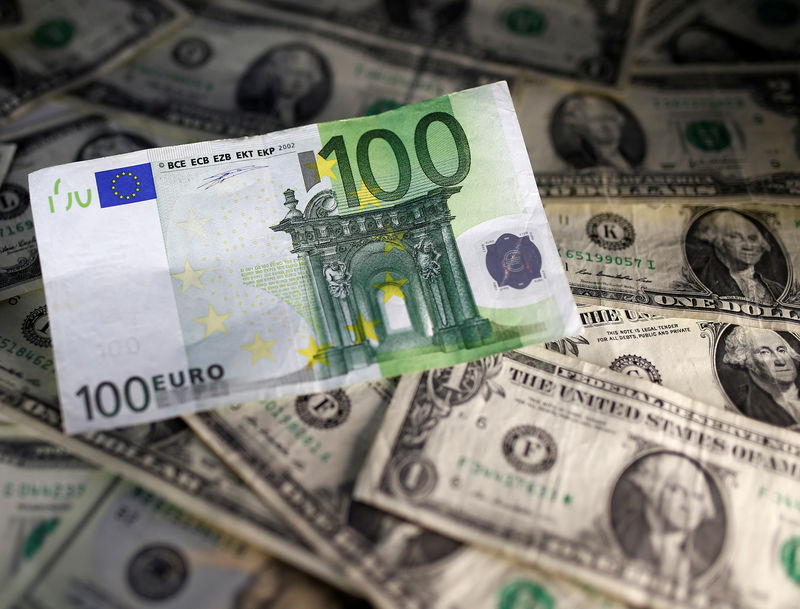Investing.com - The euro rallied to more than three-year highs against the dollar on Friday as the single currency was boosted by hopes that the European Central Bank will begin to scale back its massive monetary stimulus program this year.
EUR/USD was up 1.37% at 1.2197 late Friday, the highest level since December 2014. For the week the single currency advanced 1.33%.
The euro strengthened broadly after Thursday’s minutes of the ECB’s December meeting said officials could consider a gradual shift in policy guidance from early 2018.
Any changes to the bank’s guidance would likely be seen by investors as an indication that policymakers are preparing to start winding down their bond buying stimulus program.
The minutes also showed that policymakers see a “continued robust and increasingly self-sustaining economic expansion.”
The euro received an additional boost after German Chancellor Angela Merkel moved closer to forming a coalition government, potentially removing an element of political risk for the euro zone.
The stronger euro weighed on the dollar, sending the U.S. dollar index, which measures the greenback’s strength against a trade-weighted basket of six major currencies, down 1.13% to 90.62, its lowest level since January 2015.
A strong move higher in sterling also pressured the dollar lower.
GBP/USD jumped 1.39% to 1.3725 late Friday, the most since June 2016.
The pound was boosted higher by a report that the Netherlands and Spain are open to a deal for Britain to remain as close as possible to the European Union after Brexit.
The strong moves higher in the euro and the pound meant that the dollar failed to gain momentum from data on Friday showing that underlying U.S. consumer prices recorded their largest increase in 11 months in December, adding to expectations that inflation will accelerate this year.
The dollar slid to one-and-a-half month lows against the yen, with USD/JPY down 0.19% to 111.06 in late trade.
In the holiday-shortened week ahead, the U.S. economic calendar will be light, with a report on the housing sector expected to draw the most attention.
China is slated to release what will be closely watched fourth-quarter growth data, while in Europe investors will await monthly inflation data to assess how fast the ECB could start unwinding its asset purchase program
Ahead of the coming week, Investing.com has compiled a list of these and other significant events likely to affect the markets.
Monday, January 15
Financial markets in the U.S. are to remain closed for the Martin Luther King Day holiday.
Tuesday, January 16
New Zealand is to release data on business confidence.
The UK is to release inflation data for December.
The U.S. is to publish data on manufacturing activity in the New York region.
Swiss National Bank Chairman Thomas Jordan is to speak at an event in Zurich.
Wednesday, January 17
The euro zone is to produce revised inflation data.
The U.S. is to report on industrial production.
The Bank of Canada to announce its benchmark interest rate and publish a rate statement which outlines economic conditions and the factors affecting the monetary policy decision. The announcement is to be followed by a press conference.
Cleveland Fed President Loretta Mester is to speak at an event in New Jersey.
Thursday, January 18
Australia is to publish its latest jobs report.
China is to release a string of data including data on fourth quarter economic growth, industrial production and fixed asset investment.
The U.S. is also to publish a flurry of data, including reports on building permits, housing starts, jobless claims and manufacturing activity in the Philadelphia region.
Friday, January 19
New Zealand is to release a report on manufacturing activity.
The UK is to report on retail sales.
Canada is to publish data on manufacturing sales and foreign securities purchases.
The U.S. is to round up the week with preliminary data on consumer sentiment.
